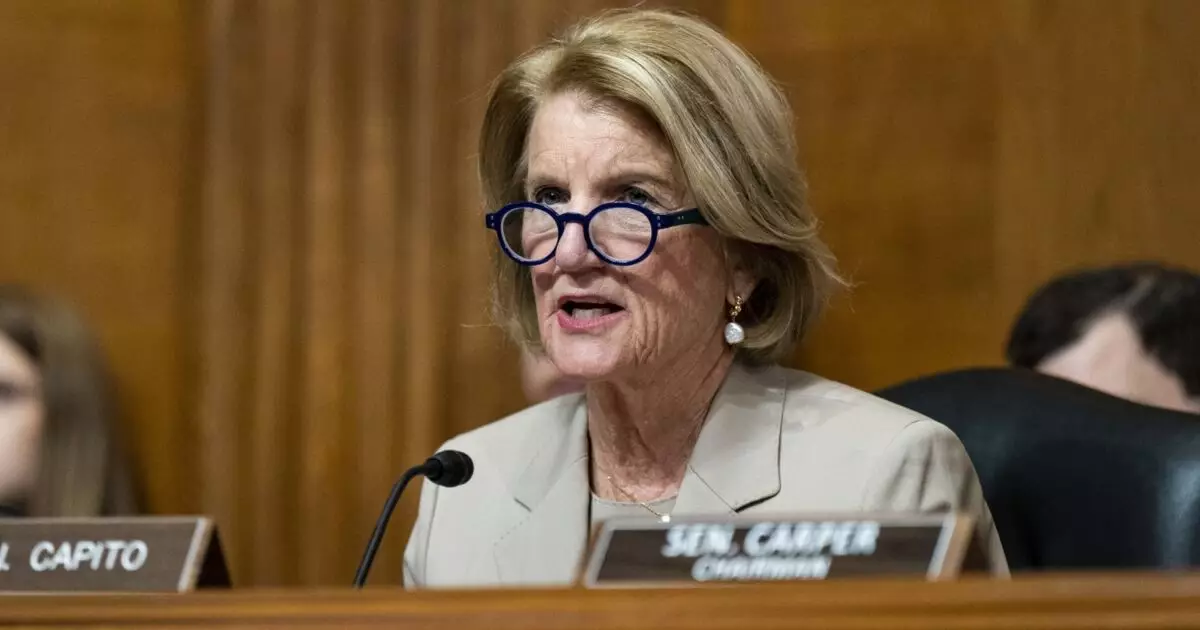The replacement of the Francis Scott Key Bridge in Baltimore is facing a significant hurdle due to a shortage of Federal Highway Administration emergency relief funds. Senate Environmental Committee ranking Member Shelley Moore Capito highlighted the pressing issue by pointing out that the ER program lacks the necessary funding for all eligible projects. The current funding shortfall stands at over $3.5 billion, leading to a backlog of projects in 38 states and territories stemming from more than 130 eligible events. This scarcity of funds presents a challenging situation when it comes to determining the financial responsibility for the bridge’s replacement.
Adding to the complexity of funding the replacement project is the fact that the Francis Scott Key Bridge is a toll bridge. Questions have arisen regarding the distribution of toll revenues once the bridge is rebuilt and the share of financial support that should come from the federal government. Typically, state projects receive 80% reimbursement, while federal projects can qualify for up to 90% reimbursement, with the state covering the remaining difference. In this case, Maryland is seeking full reimbursement, citing past practices and the need to expedite construction to prevent further losses and inconvenience to communities and drivers.
Senator Ben Cardin emphasized the state’s request for 100% reimbursement and drew parallels with past instances where the federal government bore the total cost of replacing infrastructure after catastrophic events. He pointed out the importance of avoiding delays in the project and stressed the economic impact of postponing construction. The Key Bridge has been a significant source of toll revenues for Maryland, raising concerns about the use of federal taxpayer money to fully cover the replacement costs. The debate over the allocation of financial responsibility between the state and federal government continues to be contentious, with arguments about fairness and practicality on both sides.
In response to the funding dilemma, Senators Cardin and Chris Van Hollen from Maryland have proposed legislation that would ensure the federal government receives any funds recovered through insurance claims. With estimates indicating potential insurance reimbursement of $350 million, the proposed bill seeks to safeguard federal interests in securing these funds for the bridge reconstruction. The legislation aims to clarify existing laws and establish a clear process for allocating insurance proceeds towards the project. This proactive approach demonstrates the senators’ commitment to addressing the financial challenges associated with replacing the Francis Scott Key Bridge.
The House Committee on Transportation and Infrastructure has become involved in the discussion, holding hearings to explore the funding issues surrounding the replacement of the Francis Scott Key Bridge. The hearing touched on similar topics to those raised by Senators Cardin and Van Hollen, underscoring the national significance of the bridge’s reconstruction and the need for robust financial support. As the debate continues between state and federal stakeholders, the outcome of the legislative process will determine the financial framework for the bridge replacement project.
The funding dilemma facing the replacement of the Francis Scott Key Bridge highlights the complexities of allocating financial resources for critical infrastructure projects. The shortage of emergency relief funds, coupled with the toll bridge status, has led to debates over reimbursement rates and cost-sharing arrangements between the state and federal government. Legislative efforts to secure insurance proceeds for the project illustrate a proactive approach to addressing funding challenges and ensuring timely reconstruction. As stakeholders navigate these financial intricacies, the ultimate goal remains to facilitate the efficient and equitable replacement of the bridge to serve the needs of the community and enhance transportation infrastructure in the region.

